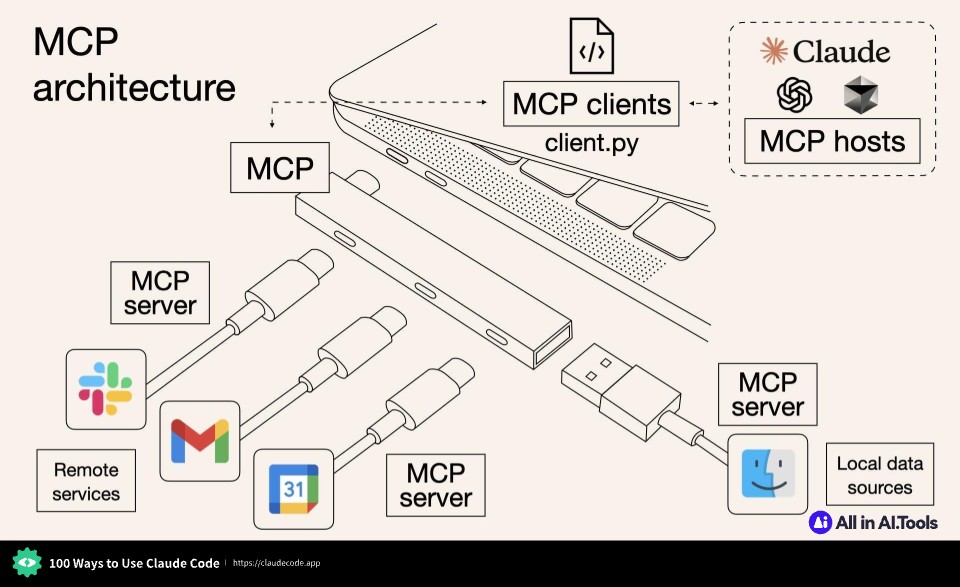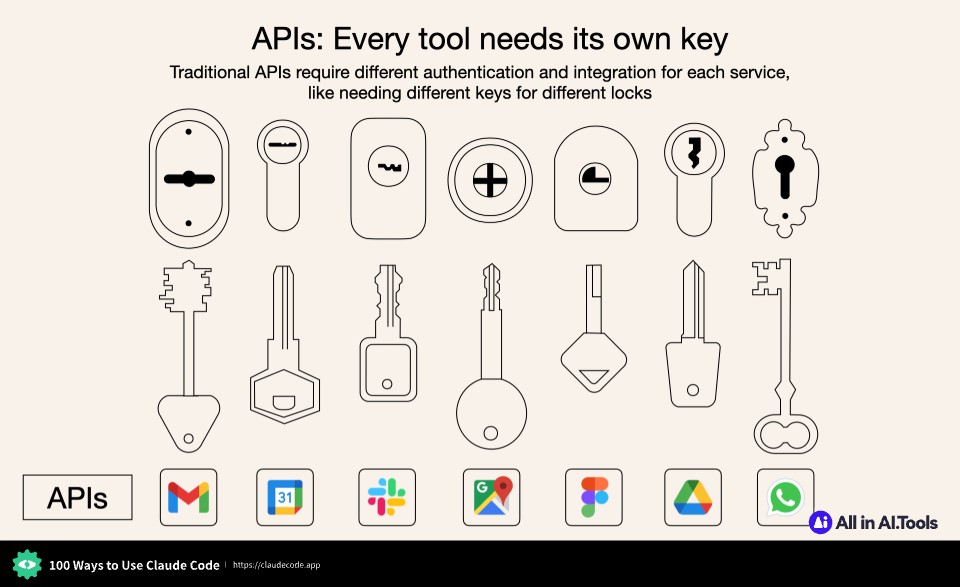Discover and integrate MCP servers to extend Claude's capabilities
Simple MCP Server to enable a human-in-the-loop workflow in tools like Cline and Cursor.
MCP Server for IDA Pro.
description: "An MCP server that enables LLMs to 'see' what's happening in browser-based games and applications through vectorized canvas visualization and debug information.
A highly specialized sniping MCP for Solana SPLP tokens that has Raydium pools
[Self-hosted] A Model Context Protocol (MCP) server implementation that provides a web search capability over stdio transport. This server integrates with a WebSearch Crawler API to retrieve search results.
MCP server that enables communication and coordination between different Roo modes/roles across multiple systems
A Model Context Protocol to allow access to a Neo4j backed knowledge graph
MCP Server Typescript Template
A lightweight Model Context Protocol (MCP) server that enables natural language interaction with your Todoist tasks directly from your IDE. Built with simplicity and maintainability in mind.
MCP (Model Context Protocol) server that utilizes the Google Gemini Vision API to interact with YouTube videos.
Automatable GenAI Scripting
An MCP server for the github notifications API for the OSS maintainer
A really simple MCP server for Jira, which uses docker for easy deployment.
Installs MCPs in cursor for you, give it a git URL and let it rip
Servidor NPM MCP - Projeto TypeScript
Model Context Protocol (MCP) bridge server for connecting to Dust.tt AI assistants (Depricated)
MCP CheatEngine Toolkit - A Python-based toolkit for communicating with CheatEngine through MCP interface
Serveur MCP (Master Control Program) pour n8n qui fournit des outils de validation de workflows et de bonnes pratiques pour vos projets d'automatisation
A model context protocol to play Geofs which is a free online flight simulator
Tools for seamless integration of different systems and services.
Cloud infrastructure and deployment management tools.
AI-powered tools for creative design workflows across 3D and 2D mediums.
AI-powered tools for product development, design review, and performance monitoring.
Tools for monitoring, analytics, and operational efficiency.


Explore Claude Cowork, Anthropic's groundbreaking AI agent built on Claude Code foundations. Discover how it enables file access, document creation, and task automation for everyone—not just developers. Learn how it integrates with MCP servers and extends Claude Code capabilities.
Explore the major [Claude code](https://claudecode.app) 2.1.1 update featuring 109 CLI improvements, automatic hot reload for skills, sub-agent execution, enhanced security, performance optimizations, and smarter prompt behavior. Learn about all the new features and improvements.
Master the art of prompting Claude with Anthropic official guide. Learn 10 proven strategies to 10x your Claude Opus and Sonnet 4.5 performance. Discover how better prompts lead to better results with practical examples and real-world applications.
Deep dive into sophisticated SSH workflows for Claude Code power users. Learn zero-friction authentication, session management, and advanced techniques that transform your vibe coding experience.
MCP (Model Context Protocol) is an open protocol that standardizes how applications provide context to LLMs. Think of MCP like a USB-C port for AI applications, providing a standardized way to connect AI models to different data sources and tools.
MCP Servers are lightweight programs that expose specific capabilities through the standardized Model Context Protocol. They act as bridges between LLMs like Claude and various data sources or services, allowing secure access to files, databases, APIs, and other resources.
MCP Servers follow a client-server architecture where a host application (like Claude Desktop) connects to multiple servers. Each server provides specific functionality through standardized endpoints and protocols, enabling Claude to access data and perform actions through the standardized protocol.
Yes, MCP Servers are designed with security in mind. They run locally with explicit configuration and permissions, require user approval for actions, and include built-in security features to prevent unauthorized access and ensure data privacy.